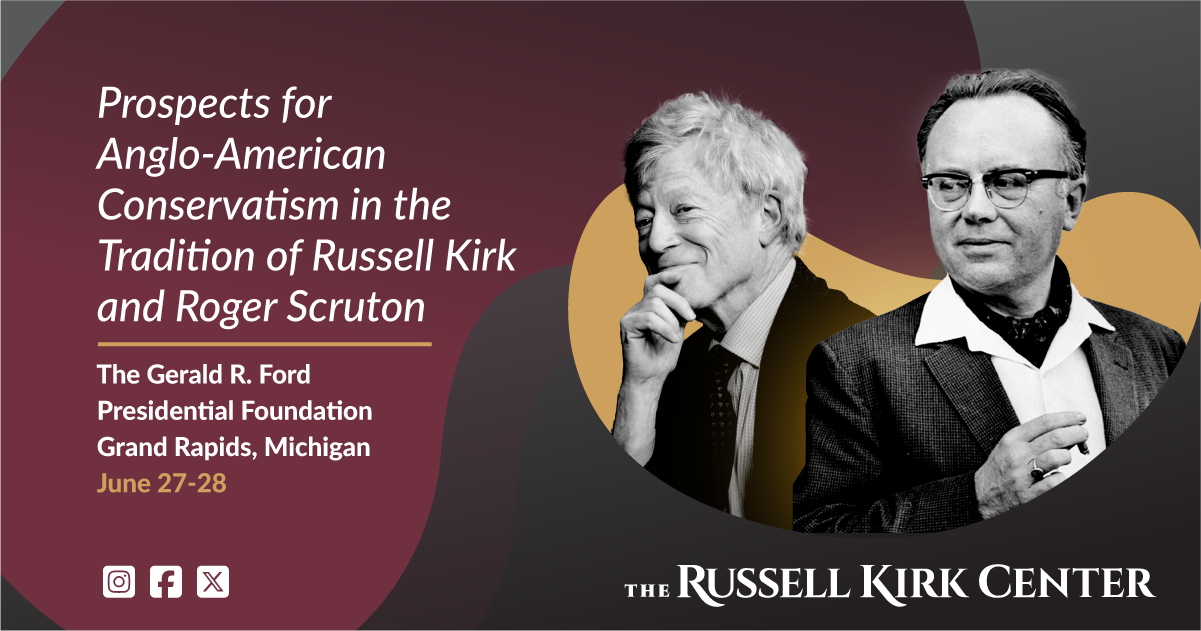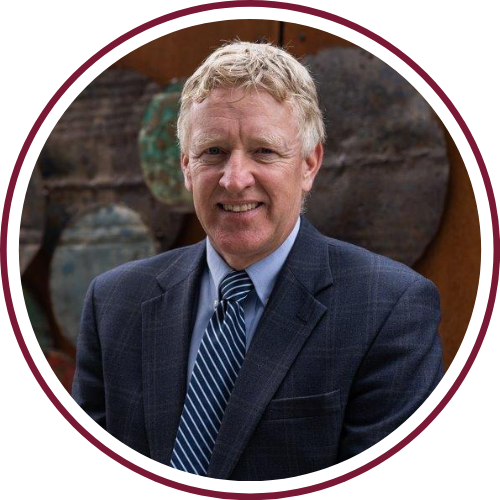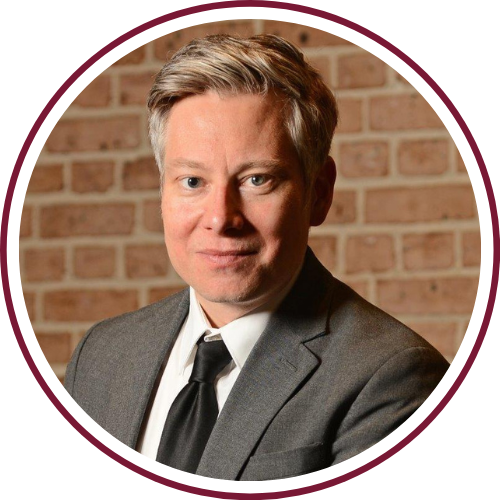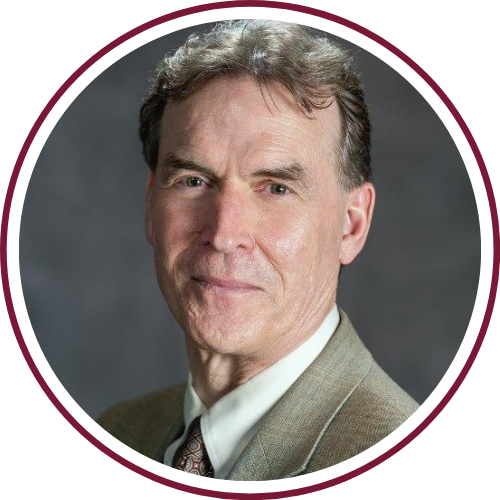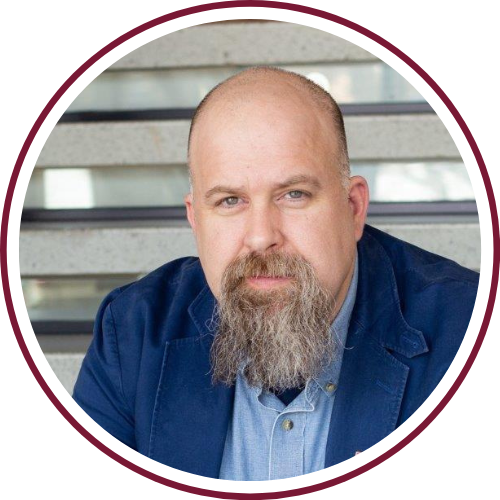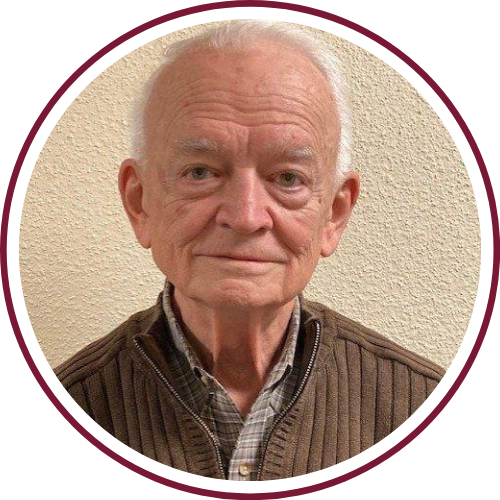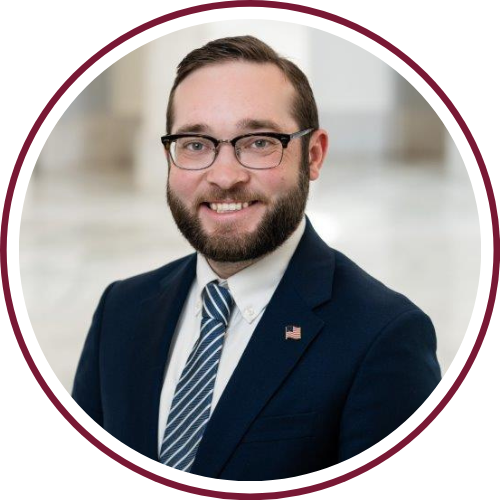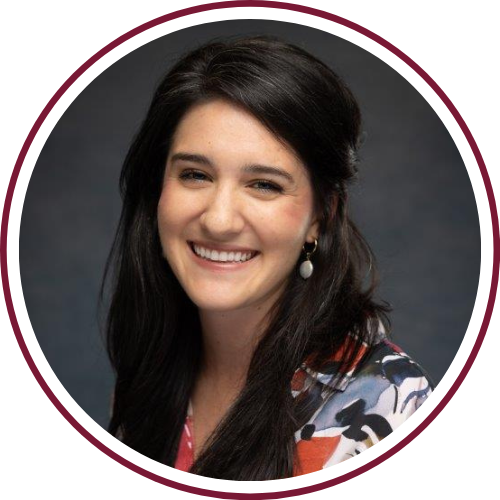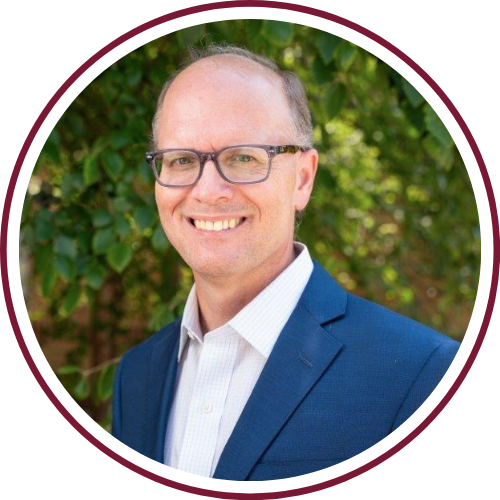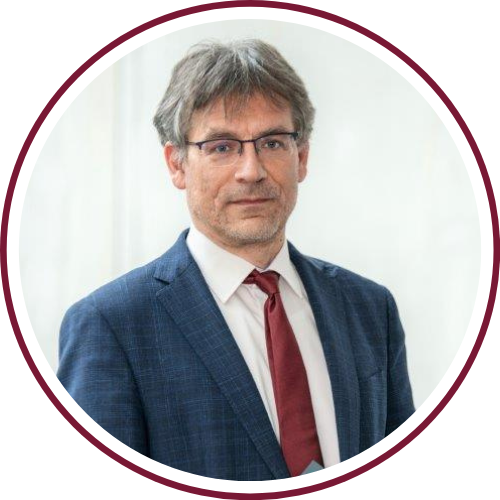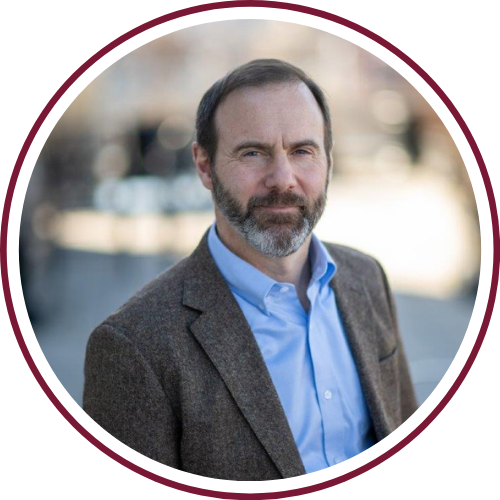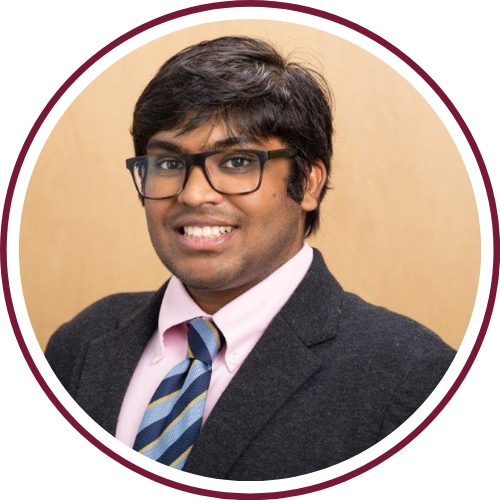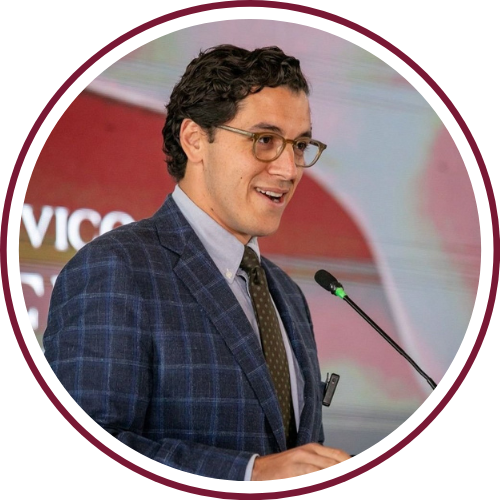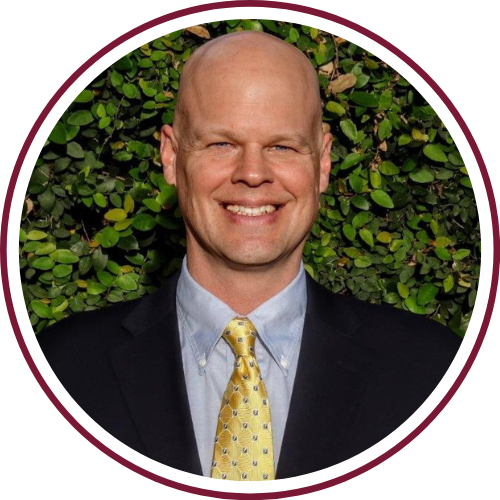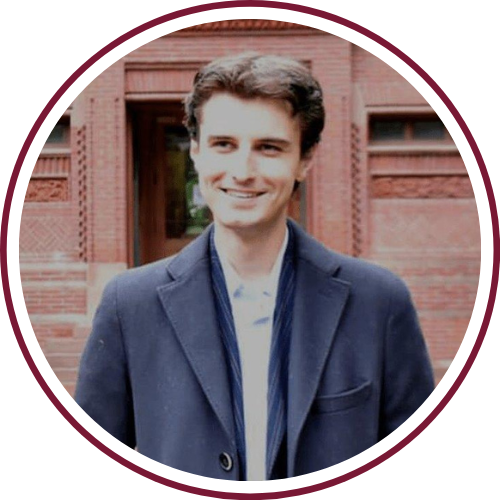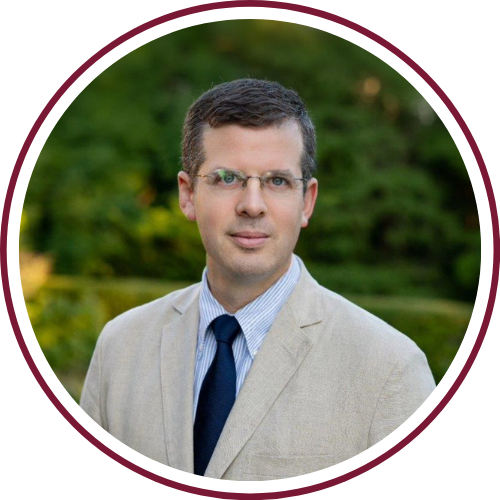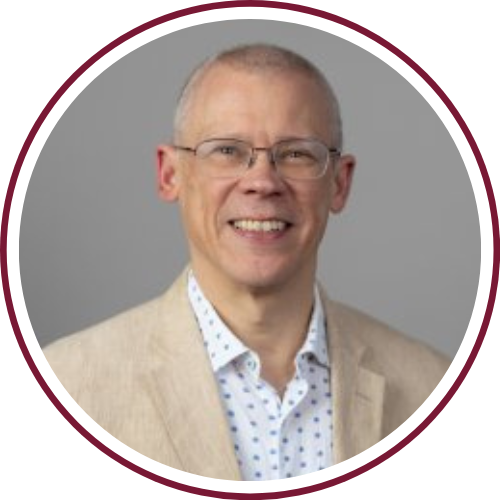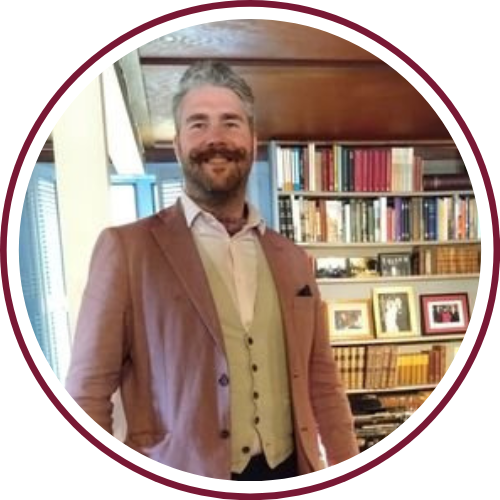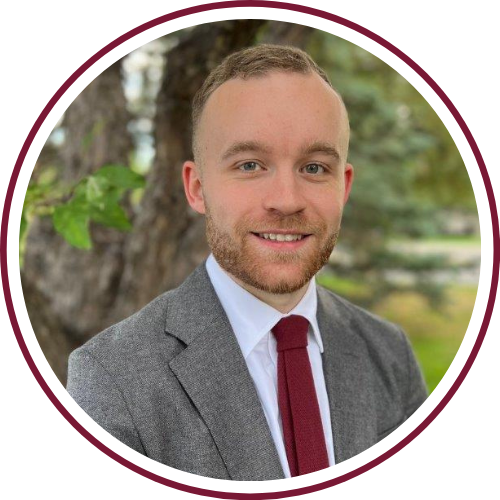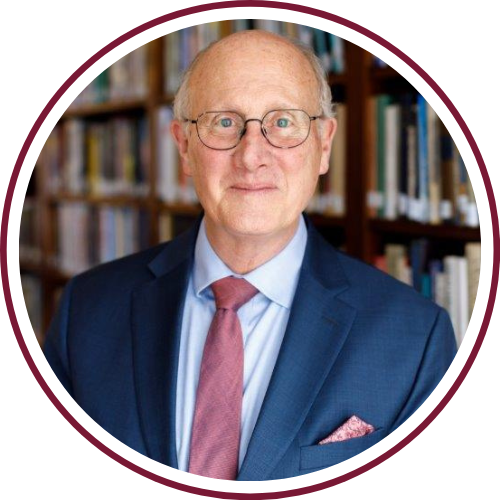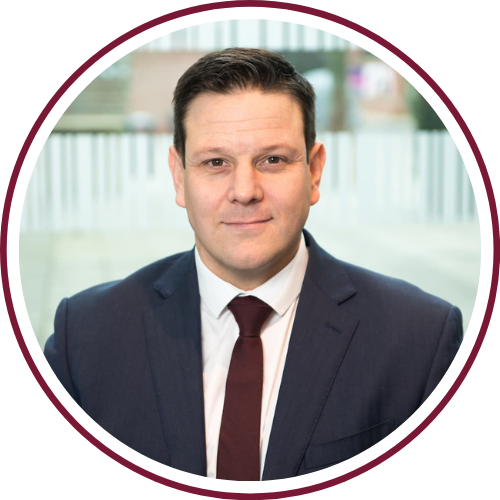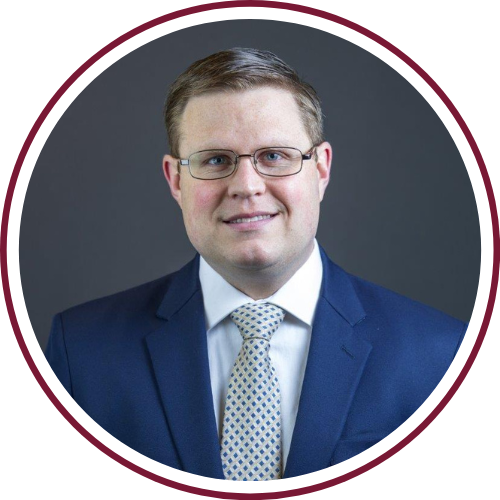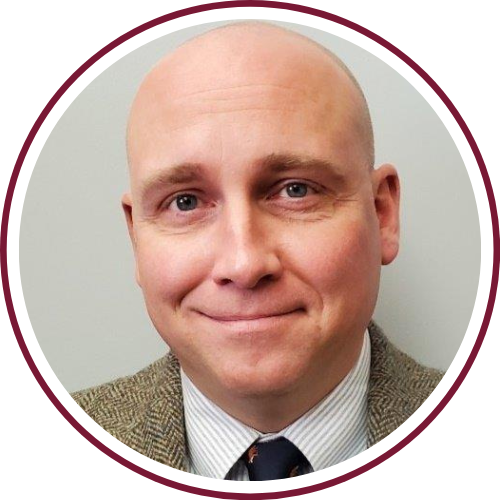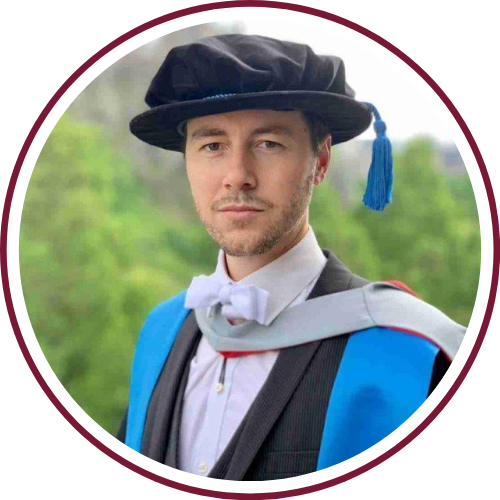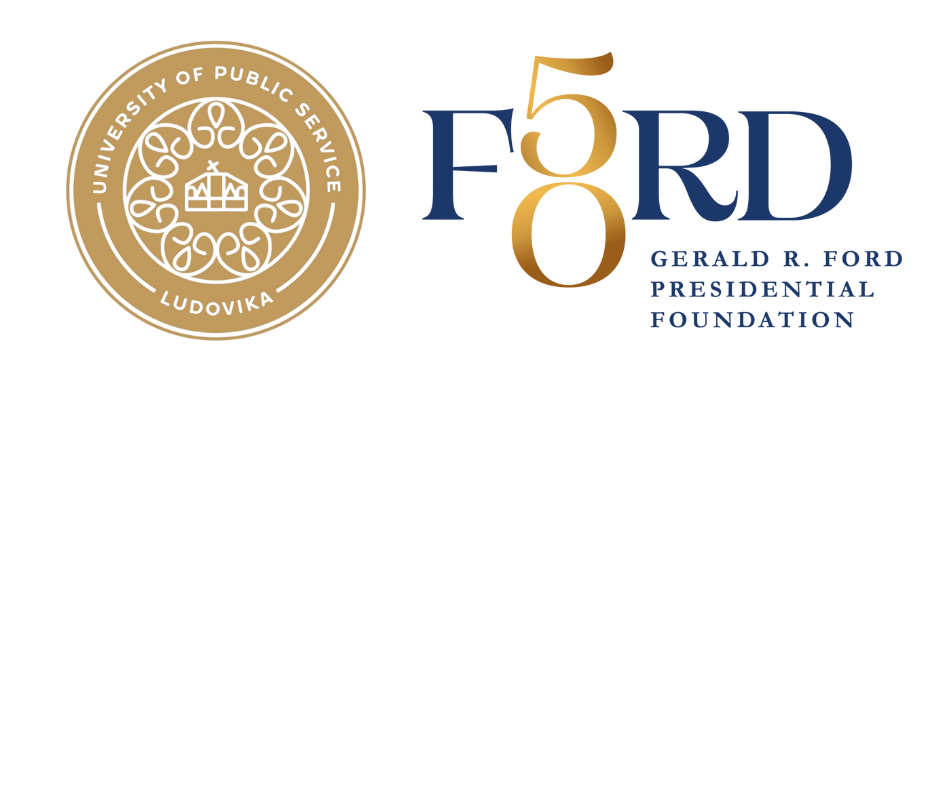Prospects for Anglo-American Conservatism in the Tradition of Russell Kirk and Roger Scruton
Jeffrey O. Nelson, Ferenc Hörcher, and Daniel Pitt have identified scholars from around the globe and across the United States to address the prospects for the Anglo-American intellectual conservative tradition through the prism of these two iconic and complementary thinkers—and the traditions of thought they represent. These scholars will be joined by some of the most promising members of the rising generation.
This opening conference from The Russell Kirk Center’s School of Conservative Studies is co-sponsored by the Gerald R. Ford Presidential Foundation.
Conference Agenda
Friday: June 27
12:30-1:00 p.m. Registration
1:00-1:30 p.m. Welcome by Jeff Polet, Director Ford Leadership Forum, The Gerald R. Ford Presidential Foundation
1:30-3:00 p.m. Session 1: The Philosophical Foundations of Conservatism
- James Matthew Wilson, University of St. Thomas – “The Conservative Defense of Christian Platonism”
- Micah Watson, Calvin University – “Universal Reason in Particular”
- Paul Mueller, American Institute for Economic Research (AIER) – “The Conservative Bent for Free
Enterprise in Scottish Enlightenment Thought” - Michael Federici, Middle Tennessee State University – “The Burkean, Babbittian, and Kirkian Foundations of Conservatism”
- 3:00-3:30 p.m. Refreshment Break
3:30 – 5:00 p.m. Session 2: Champions of the Permanent Things
- Timothy Fuller, Colorado College – “The Historical Dimension of Permanence”
- Michael Lucchese, Law & Liberty – “John Adams and the Conservative Critique of Aristocracy”
- Christina Lambert, Hillsdale College – “Permanence and Surprise in the Poetry of T. S. Eliot”
- Jeffrey O. Nelson, The Russell Kirk Center – “Heir to Europe: Ross J.S. Hoffman’s Atlantic Vision of History”
Saturday: June 28
8:30-9:00 a.m. Registration
9:00–10:30 a.m. Session 3: Conservatism and Cultural Renewal
- Ferenc Horcher, Ludovika University/University of Hull/Institute of Philosophy of the HUN-REN – “High Culture as a Common Ground”
- Christopher Scalia, American Enterprise Institute – “Renewing Literary Culture”
- Ishaan Jajodia, Yale University – “Conservatism, Cosmopolitanism, and (decidedly not) High Culture”
- Fisher Derderian, Scruton Legacy Society – “The Kitschmensch Cometh”
10:30-11:00 a.m. Refreshment Break
11:00 a.m.-12:30 p.m. Session 4: Conservatism and Religion
- Glenn Moots, Northwood University – “Conserving American Protestantism Both Past and Future”
- Mathis Bitton, Harvard University – “Conservatism and the Spirit of the Sabbath”
- Robert C. Koons, The University of Texas at Austin – “Natural Theology and Conservatism”
12:30-2:30 p.m. Lunch – On Your Own
2:30-4:00 p.m. Session 5: Conservatism, Education, and Constitutional Order
- Daniel Pitt, University of Buckingham – “A Sound Constitutional Order: Burke, Kirk and Scruton”
- Darrell Falconburg, The Russell Kirk Center – “Russell Kirk’s Vision of Liberal Education”
- Ben Lockerd, Grand Valley State University – “Dawson and Eliot on Culture and Education”
- Matt Beech, University of Hull – “University Education in a Time of Culture War: Lessons from Kirk and Scruton”
4:00-4:30 p.m. Refreshment Break
4:30-6:00 p.m. Session 6: Kirk, Scruton, and Contemporary Conservatism
- Jeff Polet, Gerald R. Ford Presidential Foundation – “Taking a Stand: The Conservative Sense of Place”
- John Grove, Law & Liberty – “Conservatism Without a Movement?”
- Bracy Bersnak, Christendom College – “Roger Scruton on Man as Territorial Animal”
- Chris Fear, University of Hull – “Conservatism Adrift in the Twenty-First Century: Lessons from Kirk and Scruton”
6:00-6:15 p.m. Closing Remarks by Jeffrey O. Nelson, Executive Director of the Russell Kirk Center
Dinner on Your Own
Session Synopsis
Session 1: The Philosophical Foundations of Conservatism
James Matthew Wilson, University of St. Thomas – “The Conservative Defense of Christian Platonism”
Edmund Burke’s defense of the civilization overturned with the French Revolution attempted to preserve the Christian-Platonic tradition that had guided Christendom but which had also fallen into decadence. He was the first of many conservatives to fight for something good with shabby equipment. Roger Scruton also made such a fight, but like S.T. Coleridge two centuries before him, drew on the modern thought of Immanuel Kant in hopes of keeping alive something much older. The nobility of these undertakings as well as their weaknesses require our re-evaluation today.
Michael Federici, Middle Tennessee State University – “The Burkean, Babbittian, and Kirkian Foundations of Conservatism”
My presentation will explain the complementary theoretical characteristics of conservatism found in the works of Edmund Burke, Irving Babbitt, and Russell Kirk. These characteristics include the importance of historical experience as a guide to prudent political conduct, the role of imagination in conceiving of the possibilities of political and social life, and relationship of moral and political order.
Micah Watson, Calvin University – “Universal Reason in Particular”
It seems that one of the permanent things about conservatism is an ongoing and interminable debate about what truly counts as conservatism. My remarks will attempt to soften or defuse some of the putative tension between the validity and applicability of “abstract reason” and the traditional conservative’s commitment to custom, place, limits, and the testimony of history.
Paul Mueller, American Institute for Economic Research (AIER) – “The Conservative Bent of Free Enterprise in Scottish Enlightenment Thought”
The Scottish Enlightenment should be seen as a proto-conservative movement. Certainly when contrasted with the French or the German Enlightenments, the Scots look conservative. But their leading lights, Adam Smith and David Hume, have been hallmarks in conservative writing and thinking. When one throws in Edmund Burke as an honorary member of the Scottish Enlightenment (Ireland and Scotland did have a close love-hate relationship after all), the conservative bent becomes undeniable.
This paper makes the case that these 18th century thinkers in the British Isles laid much of the foundation for modern American conservatism. And that foundation included not only natural rights, tradition, reform, and rule of law, but a robust and deep defense of free markets, free enterprise, and free trade.
Session 2: Champions of the Permanent Things
Timothy Fuller, Colorado College – “The Historical Dimension of Permanence”
Reflections on historical beings in quest of what resists historical contingency.
Michael Lucchese, Law & Liberty – “John Adams and the Conservative Critique of Aristocracy”
Anglo-American conservatism, especially its more sophisticated expressions, is often identified with the aristocratic interest. Vindicating tradition, after all, necessitates a defense of values such as property, high culture, and even hierarchy itself. But in recent years, conservatives on both sides of the Atlantic have grown increasingly skeptical to another kind of “rule of the few” — the dominance of the scientific-bureaucratic expert class. This seeming impasse between aristocratic longings and populist impulses defines many of the conservative movement’s most important debates today. One figure who may help resolve this tension is the man Russell Kirk considered the American Founding’s preeminent conservative, John Adams. Recent scholarship has demonstrated that the second president was preoccupied with the challenges aristocracy poses to self-government. As a political thinker, a constitutional architect, and a practical statesman, Adams worked tirelessly to balance competing interests of “the one, the few, and the many” to preserve a free society. In my paper, I will argue that the way he marshaled the terms of classical republican political analysis can help conservatives better understand the fundamental imbalances which characterize Western society today and perhaps even find a path to redeeming self-government for our own time.
Christina Lambert, Hillsdale College – “Permanence and Surprise in the Poetry of T.S. Eliot”
In Eliot and his Age, Russell Kirk describes T. S. Eliot as a friend of the “permanent things” from the very beginning of Prufrock’s fragmented, lyrical wanderings. However, Kirk also notes that Eliot’s was a voice—from The Waste Land to Four Quartets—that continued to “startle” the ears of his listeners. What are the purposes of Eliot’s formal innovations in verse and what kind of vision for art and relating to tradition do they suggest?
Jeffrey O. Nelson, The Russell Kirk Center – “Heir to Europe: Ross J.S. Hoffman’s Atlantic Vision of History”
This paper reexamines the work of Ross J.S. Hoffman (1902-1979), a conservative Catholic historian, influential disciple of Edmund Burke, and early advocate of Atlantic history. It argues that Hoffman’s vision of an “Atlantic Community” offered a framework in which the moral and cultural legacy of Christian Europe could find renewed expression in the Anglo-American tradition. By recovering Hoffman’s legacy, the paper highlights a pre-Cold War model of cultural and civilizational unity that challenges modern nationalist and secularist frameworks.
Session 3: Conservatism and Cultural Renewal
Ferenc Horcher, Ludovika University/University of Hull/Institute of Philosophy of the HUN-REN – “High Culture as a Common Ground”
Conservatism holds that culture shapes politics, and religion shapes culture. This view, shared by thinkers like Russell Kirk and Roger Scruton, underscores the need for a conservatism that pays special attention to culture, including high culture. This paper argues that culture, particularly high culture, is a common good—it benefits the entire community and all its members. This doesn’t mean the government should dictate cultural policies, though some issues require attention at the state or federal level. However, the government does have a role in sustaining conditions that support a flourishing high culture, as part of the national heritage. Enjoying high culture shouldn’t be seen as an elite privilege, even if fewer people engage with it compared to popular culture. A thriving high culture refines the whole community, fostering a political culture that enables citizens to participate in public life in an informed, consequential way, more often at the local level. Also, culture plays a special role in the exercise of soft power in international relations, without which there is no successful public diplomacy in the 21st century.
Christopher Scalia, American Enterprise Institute (AEI) – “Renewing Literary Culture”
What can conservatives do to help resuscitate the significance of the literary arts in our culture? What is the role of literature in a society that barely reads, and how can teachers and writers help reverse the growing apathy toward literature? Dr. Scalia will discuss these questions and consider media and forms that could help resuscitate fiction in particular, looking to the past for models to embrace or avoid.
Ishaan Jajodia, Yale University – “Conservatism, Cosmopolitanism, and (decidedly not) High Culture”
Roger Scruton’s I Drink Therefore I Am is a thoroughly Kantian take on the Cartesian phrase. Elsewhere, Sir Roger has written on the opera, on high architecture, and on high art. Conservatives in the Anglo-American tradition have engaged in the appreciation of what we can reasonably call high culture: of classical music, of opera, of fine art. But conservatives in the Anglo-American tradition, particularly in the United States, have never made their peace with cosmopolitanism, the city, and middle-brow and low-brow culture, much less with modernism. The starkest display of this attitude is in William F. Buckley, Jr.’s debate with James Baldwin. The demise of the so-called “Country Club Republican” withdrew from the conservative coalition in the United States the last bastion of cosmopolitanism and urbane cultural expressionism, particularly by the repulsion that the Tea Party insurgency gathered. My talk goes back to the “handbooks”—The Official Preppy Handbook, and the handbooks it spawned, The Sloane Ranger Handbook, The Young Fogey Handbook, The Yuppie Handbook, and the YAP: Young Aspiring Professional handbook, to suggest that all is not lost, and that Anglo-American conservatives can recover the middle ground and cosmopolitanism to regain a foothold in a vital culture.
Fisher Derderian, Scruton Legacy Society
The Kitschmensch is a master of surface, drawn to sentiment, aesthetic comfort, and the illusion of meaning. Named by Hermann Broch and sharpened by Roger Scruton, he reflects a deeper cultural shift: the preference for feeling over form and imitation over inheritance. This talk considers how kitsch has reshaped our moral and artistic lives, and why any serious effort at cultural renewal must begin with the recovery of judgment, memory, and the habits that sustain the beautiful and the true.
Session 4: Conservatism and Religion
Glenn Moots, Northwood University – “Conserving American Protestantism Both Past and Future”
This paper uses insights from both Kirk and Scruton to identify essential contributions of Protestantism to the American character meriting conservation and celebration.
Mathis Bitton, Harvard University – “Conservatism and the Spirit of the Sabbath”
In The Lonely Man of Faith, Joseph Soloveitchik contrasts two views of the biblical Adam — Adam 1, the Promethean master of nature on the one hand, and Adam 2, the meditative keeper of the garden. The first expresses his creative drive by means of technology and innovation. The second offers a counterpoint to that Promethean impulse, embodying the need to cherish the given and honor our obligations to it. For Soloveitchik, the key to a life well-lived is to find a balance between these two forces. Among us moderns, however, the first force dominates and the second recedes into oblivion. In this paper, I frame conservatism as an expression of the need to cherish the given — that is, to cultivate the spirit of Adam 2. Focusing on the Sabbath as an institution that captures this conservative mandate, I show what it means to offer a counterpoint to the Promethean drive. In doing so, I participate in a dialogue between Jewish thought and conservatism to see how the former might help us understand the task of the latter.
Ronen Shoval, Argaman Institute for Advanced Conservative Studies – “Before Burke: The Mosaic Origins of Conservative Tradition”
Conservatism is often seen as an English or classical inheritance, with Edmund Burke hailed as its foundational thinker. Yet this view contains a paradox: while Burke may be regarded as the father of modern conservatism, by definition, he could not have been the first conservative. Conservatism is a disposition of preservation — it must be rooted in an existing tradition that precedes the one who seeks to conserve it.
If we seek to understand what Burke and his intellectual heirs were truly conserving, we must look beyond England, Athens, and Rome — and turn our attention to Sinai.
A close examination of Burke’s intellectual lineage — through figures like John Selden and Sir John Fortescue — reveals that the foundational ideas of conservatism are profoundly shaped by biblical, Mosaic principles: ordered liberty, covenantal community, moral limits on power, and reverence for the sacred. Indeed, as John Winthrop and the American Founding Fathers spoke of a “city upon a hill,” they pointed not to Athens or Rome, but to Jerusalem — to a vision rooted in the Mosaic tradition of covenant, moral limits, and sacred community.
Session 5: Conservatism and Education
Daniel Pitt, University of Buckingham – “A Sound Constitutional Order: Burke, Kirk and Scruton”
This talk will analyze the constitutional thought of Russell Kirk and Roger Scruton. It will dive into their ideas about ‘unwritten’ elements of constitutional order in both the USA and the UK. Moreover, it will analyze the importance of social norms, culture and conventions in relation to constitutional order as well as their views on the common law and other constitutional elements within the Anglo-American tradition.
Darrell Falconburg, The Russell Kirk Center – “Russell Kirk’s Vision of Liberal Education”
Usually remembered as the father of American conservatism and an author of ghostly fiction, Russell Kirk is not usually known for his educational writings. The fact remains, however, that Kirk wrote more on education than on any other single subject. Not only did Kirk address the topic of education with great frequency, but he also put forward an insightful vision of education that placed him among the ranks of Christopher Dawson, T.S. Eliot, and other foremost writers in the twentieth century on the topic of liberal learning. Above all, Kirk identified the inseparable relationship between the tradition of liberal education and the disposition to conserve.
Benjamin Lockerd, Grand Valley State University – “Dawson and Eliot on Culture and Education”
T. S. Eliot acknowledged that the British historian Christopher Dawson was an important influence on his cultural ideas. During the 1930s and 1940s, the two thinkers expressed similar thoughts on the relationship between culture and politics, with both arguing that in important ways culture was primary and politics secondary. The solutions they offered to modern societal problems were not primarily political, for they believed that too much focus on political power ignored the cultural foundations of society, and particularly the spiritual dimension. Both argued that passing on cultural traditions was essential to a healthy society, so they placed great emphasis on the role of liberal arts education. We find their ideas echoed more recently by both Russell Kirk and Roger Scruton.
Matt Beech, University of Hull – “University Education in a Time of Culture War: Lessons from Kirk and Scruton”
This paper asserts that education in the Anglo-American university and especially within the social sciences and humanities is taking place at a time of unprecedented polarization and cultural conflict, a time of Culture War. From this starting point, the paper investigates the extent to which lessons can be drawn and applied from the work of Kirk and Scruton. And, by so doing, renew the pursuit and impartation of practical wisdom.
Session 6: Kirk, Scruton, and Contemporary Conservatism
Jeff Polet, Ford Presidential Foundation – “Taking a Stand: The Conservative Sense of Place”
Russell Kirk and Roger Scruton both understood that a life rewarding and purposeful is one fully grounded, not only in principle but in a specific plot of earth. Kirk and Scruton celebrated places not only for their eccentric particularities but because they were portals to deeper realities and meanings. Preserving these places against the grinding uniformity of industrial modernity became a central concern for them.
John Grove, Law & Liberty – “Conservatism Without a Movement?”
Conservatism in the vein of Kirk and Scruton must take care to define itself apart from any partisan movement that may wish to borrow the name “conservative.” Seen not as a political faction, but as a manner of understanding and living in the world, conservatism calls for a more judicious and articulated understanding of the proper task of government than most “movement conservatives”–past or present–have offered.
Bracy Bersnak, Christendom College – “Roger Scruton on Man as a Territorial Animal”
Historically, conservatives have been skeptical of nation states, seeing them as threats to local communities. More recently, they have looked to nations to preserve local community against globalization. But nations have been viewed as suspect in the eyes of political philosophers since World War II, often being blamed for nationalism, racism, and worse. In his defense of the nation and national loyalty, Roger Scruton argues that the principle of political unity is attachment to a common territory rather than a religion or tribe. Legal jurisdiction is necessarily territorial. It is only within the bounds of a specific territory that people share customs, institutions, and history. Loyalty to the nation permits other sources of loyalty, which might otherwise conflict with one another, to nest peacefully within the shared territory. National loyalty makes democracy possible, according to Scruton, because it transcends partisan loyalty and facilitates accountability for rulers. Without territorial jurisdiction, nations and the democratic virtues that come with them cannot be preserved.
Christopher Fear, University of Hull – “Conservatism Adrift in the Twenty-First Century: Lessons from Kirk and Scruton”
This paper draws on a range of work by Russell Kirk and Roger Scruton to offer both diagnosis and prognosis of contemporary conservatism in Britain. Its argument is that conservatism is currently ‘adrift’ on three different levels: the institutional, the intellectual–academic, and the popular. It ends with some corresponding ‘pointers’ for the conservative movement of the 2030s.
Conference Speakers
Opening Remarks
Jeff Polet, The Gerald R. Ford Presidential Foundation
Jeff Polet is Director of the Ford Leadership Forum at the Gerald R. Ford Presidential Foundation. Previously, he was a Professor of Political Science at Hope College, and before that, he was at Malone College in Canton, OH. A native of West Michigan, he received his BA from Calvin College and his MA and Ph.D. from The Catholic University of America. His work has appeared in many scholarly journals as well as popular venues such as The Hill, The Spectator, The American Conservative, First Things, and others. He serves on the board of The Front Porch Republic, an organization dedicated to the idea that human flourishing happens best in local communities and in face-to-face relationships. He has lectured at many schools and civic institutions across the country. He is married, and he and his wife enjoy the occasional company of their three adult children. He is also a Senior Fellow at the Russell Kirk Center.
Session 1: The Philosophical Foundations of Conservatism
James Matthew Wilson, University of St. Thomas
James Matthew Wilson is the Cullen Foundation Chair in English Literature and the founding director of the MFA program in Creative Writing at the University of Saint Thomas. He is the author of sixteen books, including Saint Thomas and the Forbidden Birds (Word on Fire, 2024), his most recent poetry collection. His earlier collection, The Strangeness of the Good (2020), received the Poetry Book of the Year award from the Catholic Media Awards. Among other honors, he has received the Hiett Prize from the Dallas Institute of Humanities (2017), the Parnassus Prize from Memoria College (2022), and the Lionel Basney Award from the Conference on Christianity and Literature—which he received twice. In addition to his work at the University of Saint Thomas, Wilson serves as poet-in-residence of the Benedict XVI Institute, scholar-in-residence at Aquinas College, editor of Colosseum Books, and poetry editor of Modern Age magazine.
Michael Federici, Middle Tennessee State University
Michael P. Federici is Professor and former Chair of the Department of Political Science and International Relations at Middle Tennessee State University (MTSU), where he currently serves as Faculty Senate President. He previously taught for twenty-four years at Mercyhurst University, where he chaired the department for seven years, served as Faculty Senate President, and sat on the university’s Board of Trustees. Federici earned his B.S. in economics from Elizabethtown College and his M.A. and Ph.D. in politics from The Catholic University of America. He is the author or editor of six books, including The Challenge of Populism (1991), Eric Voegelin: The Restoration of Order (2002), The Political Philosophy of Alexander Hamilton (2012), Rethinking the Teaching of American History (edited, 2012), The Culture of Immodesty in American Life and Politics (co-edited, 2013), and The Catholic Writings of Orestes Brownson (2019). Professor Federici has also published numerous scholarly articles and book reviews. He is also a Senior Fellow at the Russell Kirk Center.
Micah Watson, Calvin University
Micah Watson is the Paul Henry Chair in the Study of Christianity and Politics at Calvin University, where he also directs the Henry Institute and the program in Politics, Philosophy, and Economics. A native of California, he now lives in Grand Rapids, Michigan, with his wife Julie, their five children, and one son-in-law. His broad research interests include political philosophy, politics and religion, politics and literature, ethics and public policy, and constitutional jurisprudence. Watson is a contributing editor at Public Discourse and co-author of C.S. Lewis on Politics and the Natural Law (2017) and Hopeful Realism: Evangelical Natural Law and Democratic Politics (2025). He has partnered with a number of think tanks and institutes, including the Russell Kirk Center, where he has participated in several academic events.
Paul Mueller, American Institute for Economic Research (AIER)
Paul Mueller is a Senior Research Fellow at the American Institute for Economic Research and Associate Director of the Religious Liberty in the States project at the Center for Culture, Religion, and Democracy. He received his Ph.D. in economics from George Mason University and previously taught at The King’s College in New York City. His academic work has appeared in journals such as The Adam Smith Review, The Review of Austrian Economics, The Journal of Economic Behavior and Organization, The Journal of Private Enterprise, and The Quarterly Journal of Austrian Economics. He is the author of Ten Years Later: Why the Conventional Wisdom about the 2008 Financial Crisis is Still Wrong (2019). Mueller lives in Leadville, Colorado, where he and his wife operate a bed and breakfast, The Abbey, and raise their five children.
Session 2: Champions of the Permanent Things
Timothy Fuller, Colorado College
Timothy Fuller is Professor of Political Science at Colorado College, where he has taught since 1965. He served as Acting President from August 2001 to January 2002, Dean of the Faculty and College from 1992 to 1999, and Chair of the Political Science Department from 1985 to 1991. He earned his Ph.D. (with distinction) from Johns Hopkins University in 1971, his M.A. in 1965, and his B.A. with honors from Kenyon College in 1961. Fuller has published widely in political theory and the history of political thought. He is the editor of The Voice of Liberal Learning: Michael Oakeshott on Education (2000), Reassessing the Liberal State (2001), and The Intellectual Legacy of Michael Oakeshott (2005), and a contributor to Political Philosophy in the Twentieth Century: Authors and Arguments (2011). His most recent publication is Michael Oakeshott on the Human Condition (2024), a collection of his essays on Oakeshott’s thought. He also co-edited, with Shirley Letwin, the Selected Works of Michael Oakeshott and served as editor of the International Hobbes Association Newsletter. He has lectured at forty-four colleges and universities across the United States and internationally. He has also served as a Distinguished Academic Visitor in the Government Department at the London School of Economics and as Bell Distinguished Visiting Professor in the Department of Philosophy and Religion at the University of Tulsa.
Michael Lucchese, Law & Liberty
Michael Lucchese is the founder and CEO of Pipe Creek Consulting, a communications firm based in Washington, D.C. He is also an associate editor of Law & Liberty and a contributing editor to Providence, as well as a member of the Philadelphia Society and the Academy of Philosophy and Letters. Previously, he was a Krauthammer Fellow with the Tikvah Fund, a visiting scholar at Liberty Fund, and an aide to U.S. Senator Ben Sasse. His writing on national security, the conservative movement, and the American Founding has been published widely at outlets such as the Wall Street Journal, National Review, and the Washington Examiner. He graduated from Hillsdale College with a B.A. in American Studies and is an alumnus of the Hudson Institute Political Studies Program.
Christina Lambert, Hillsdale College
Christina J. Lambert is an Assistant Professor of English at Hillsdale College, where she teaches American literature. Her writing has been published by Tulsa Studies in Women’s Literature, Christianity and Literature, and Modern Fiction Studies, and she has forthcoming work on T. S. Eliot appearing in The T. S. Eliot Studies Annual and in a new collection from Edinburgh University Press on Eliot’s dramatic works. Her current book project explores the intersection of food studies and eucharistic theology in the poetry and drama of T. S. Eliot and Denise Levertov. In addition to being a rising scholar in the study of T.S. Eliot, she has also written and published about the fiction of Wendell Berry.
Jeffrey O. Nelson, The Russell Kirk Center
Jeff Nelson is Executive Director and CEO, as well as co-founder, of the Russell Kirk Center for Cultural Renewal. He holds a B.A. from the University of Detroit, a M.A. from Yale University Divinity School, and a Ph.D. in American History from the University of Edinburgh in Scotland. He held senior management and educational leadership roles at the Intercollegiate Studies Institute (ISI) in Wilmington, Delaware, and served as president of the Thomas More College of Liberal Arts (Merrimack, NH). A former literary assistant to Russell Kirk, he went on to found the book-publishing imprint, ISI Books–which published, among other titles, Roger Scruton’s The West and the Rest. He was the editor of The Intercollegiate Review and The University Bookman, and edited a number of books, including Redeeming the Time by Russell Kirk, American Conservatism: An Encyclopedia, The Political Principles of Robert Taft by Russell Kirk and James McClellan, Perfect Sowing by the publisher Henry Regnery, and Remembered Past by the great conservative historian John Lukacs. Recently, he founded a new Kirk Center book imprint, Mecosta House. In 2025, he received the Ciceronian Society’s Peter A. Lawler Award for excellence in cultivating humanistic learning.
Session 3: Conservatism and Cultural Renewal
Ferenc Horcher, Ludovika University/University of Hull/Institute of Philosophy of the HUN-REN
Ferenc Hörcher is a political philosopher and philosopher of art. He studied in Budapest, Oxford and Brussels/Leuven. He is head of the Research Institute of Politics and Government at Ludovika University of Public Service, and has been a director of the Institute of Philosophy of the Hungarian Academy of Sciences in Budapest for six years. He is also a senior fellow at the Centre for British Politics of the University of Hull in Britain. His main research interests include Conservatism, Classical Liberalism, urban republicanism, and the philosophy of art. His last books published in English were Art and Politics in Roger Scruton’s Conservative Philosophy (2023), A Political Philosophy of Conservatism: Prudence, Moderation and Tradition (2020), and The Political Philosophy of the European City (2021). His next book submitted is titled An Aristotelian Philosophy of Civility.
Christopher Scalia, American Enterprise Institute (AEI)
Christopher J. Scalia is a senior fellow in the Social, Cultural, and Constitutional Studies department at the American Enterprise Institute, where he focuses on literature, culture, and higher education. A former English professor, Scalia specialized in 18th-century and early 19th-century British literature. He also spent three years as director of AEI’s Academic Programs department, where he led educational and professional-development programs and events for college students around the country. His articles, essays, and reviews on literature, music, higher education, and other topics have appeared in The Wall Street Journal, The Washington Post, USA Today, Commentary, National Review, First Things, The Washington Free Beacon, the Times Literary Supplement, The Spectator World, and FoxNews.com, among other outlets. Scalia is the coeditor of On Faith: Lessons from an American Believer (2019), and Scalia Speaks: Reflections on Law, Faith, and Life Well Lived (2017). His latest book, Thirteen Novels Conservatives Will Love (But Probably Haven’t Read), was published by Regnery Publishing in May 2025.
Ishaan Jajodia, Yale University
Ishaan Jajodia is a Political Theory PhD Candidate at the Department of Political Science at Yale, prior to which he earned an AB at Dartmouth College. His dissertation project examines the political ideas behind city planning and argues that city planning is, in essence, political philosophy in practice, from Pericles and Hippodamus to the futuristic Saudi Arabian city Neom, best known for its twin mile-long skyscrapers. From the Periclean Parthenon to the “smart cities” of the Middle East, he looks at how cities embody and reflect political philosophy’s practical application throughout history and chart a trajectory for cities past, present, and future.
Fisher Derderian, Scruton Legacy Society
Fisher Derderian is Executive Director of the Roger Scruton Legacy Foundation, an American nonprofit and English charity dedicated to advancing the philosophical and cultural legacy of the late Sir Roger Scruton. Under his leadership, the Foundation has convened events and cultural initiatives across the United States, Europe, and Latin America, bringing together artists, scholars, and civic leaders from around the world. He also serves as Vice Chair of the Costa Mesa Arts Commission in California and writes Dux Culturae, a newsletter on renewing culture through beauty, tradition, and the institutions that shape public life. Fisher holds an MA in Philosophy from the University of Buckingham, where he studied under Sir Roger Scruton, and a BA in Politics, Philosophy, and Economics from The King’s College in New York City.
Session 4: Conservatism and Religion
Glenn Moots, Northwood University
Glenn Moots is Professor of Philosophy and Political Science at Northwood University. He is the author or editor of two academic books: Politics Reformed: The Anglo-American Legacy of Covenant Theology and Justifying Revolution: Law, Virtue, and Violence in the American War of Independence. He has delivered nearly two hundred conference presentations and published essays, chapters, and articles in both academic and popular outlets. In 2013–14, he served as a William E. Simon Fellow in Religion and Public Life at the James Madison Program in the Department of Politics at Princeton University. He has also held fellowships from the Earhart Foundation, the Huntington Library, the Jack Miller Center, the Acton Institute, and the Intercollegiate Studies Institute.
Mathis Bitton, Harvard University
Mathis Bitton is a PhD student in Government at Harvard University. His dissertation traces the history of Prometheanism to recover a romantic, enchanted view of technology. He has previously worked at major Washington, D.C. think tanks, tech-focused magazines, and the French National Assembly. His writings have been published in outlets such as the Wall Street Journal, National Review, the Harvard Business Review, American Affairs, and the New Statesman. He graduated from Yale College.
Ronen Shoval, Argaman Institute for Advanced Conservative Studies
Ronen Shoval is an Israeli philosopher, political theorist, and author.
He serves as the Head of the Argaman Institute for Advanced Studies and was formerly Dean of the Tikvah Fund. In the 2022–2023 academic year, he was a Visiting Associate Research Scholar and Lecturer in Politics at Princeton University. His research explores the interplay of philosophy, politics, and society, with a focus on the intellectual traditions of Western and Jewish thought. His latest book, Holiness and Society: A Socio-Political Exploration of the Mosaic Tradition (2024), examines the political and cultural dimensions of the biblical tradition.
Robert C. (“Rob”) Koons is a professor of philosophy at the University of Texas at Austin, where he has taught for 35 years. M. A. Oxford, Ph.D. UCLA. He is the author or co-author of five books, including: Realism Regained (Oxford University Press, 2000) and The Atlas of Reality: A Comprehensive Guide to Metaphysics, with Timothy H. Pickavance (Wiley-Blackwell, 2017). He is the co-editor (with George Bealer) of The Waning of Materialism (Oxford University Press, 2010), (with Nicholas Teh and William Simpson) of Neo-Aristotelian Perspectives on Contemporary Science (Routledge, 2018), and (with William Simpson and James Orr) of Neo-Aristotelian Metaphysics and the Philosophy of Nature (Routledge, 2021). He has been working recently on an Aristotelian interpretation of quantum theory, on defending and articulating Thomism in contemporary terms, and on arguments for classical theism. His forthcoming books include: Is Thomas Aquinas’s Philosophy of Nature Obsolete? (St. Augustine Press) and Classical Theism (Routledge), co-edited with Jonathan Fuqua.
Session 5: Conservatism and Education
Daniel Pitt, University of Buckingham
Daniel Pitt is an Honorary Research Fellow at the University of Buckingham and a Visiting Postdoctoral Researcher at Ludovika University. Recently, he co-edited with Ferenc Hörcher a volume entitled Intellectual Conservatism: From Burke to Scruton (forthcoming, 2025). He received his PhD from the University of Hull, where his research focused on the British Constitution, conservatism, and the Conservative Party. Previously, he completed an MA in political philosophy at the University of Buckingham under the supervision of Sir Roger Scruton. He has written for publications such as Conservative Home, The Critic, The Burkean, and others. He was a member of Erewash Borough Council representing the residents of Derby Road West from 2019 to 2023 and held a Lead Member for Town Centres role.
Darrell Falconburg, The Russell Kirk Center
Darrell Falconburg is the Academic Program Officer at the Russell Kirk Center. He also serves as Humanities Editor for The University Bookman, the Center’s book review journal, and as an Assistant Editor for VoegelinView, an online arts and humanities publication. In addition, he teaches as an Adjunct Instructor in the Department of Humanities at Faulkner University. Following his dissertation, he is currently working on a book project exploring Russell Kirk’s understanding of liberal education, as well as co-editing a collection of Kirk’s writings in National Review. His writing on liberal education, the humanities, and Western culture has appeared in both academic and popular outlets, including Pietas, The Imaginative Conservative, and Catholic World Report.
Benjamin Lockerd, Grand Valley State University
Benjamin G. Lockerd holds an M.A. from the University of Toronto and a Ph.D. from the University of Connecticut. For 35 years, he was a Professor of English at Grand Valley State University in Grand Rapids, Michigan, where he received the Alumni Association’s Outstanding Educator Award. He is the author of The Sacred Marriage: Psychic Integration in The Faerie Queene (1987) and Aethereal Rumours: T. S. Eliot’s Physics and Poetics (1998), as well as numerous articles on Eliot and Renaissance literature. Lockerd also wrote the introductions to new editions of Russell Kirk’s Enemies of the Permanent Things and Eliot and His Age. He served as president of the T. S. Eliot Society and, more recently, edited a collection of essays, T. S. Eliot and Christian Tradition (2014). He is currently a Research Fellow in the graduate humanities program at the Center for Great Books and Human Flourishing at Faulkner University. He is a member of the Board of Directors of the Russell Kirk Center.
Matt Beech, University of Hull
Matt Beech is Reader in Politics and Director of the Centre for British Politics at the University of Hull. A political scientist and historian, he teaches post-war British political history, government, and the culture wars. Beech is a Senior Fellow at UC Berkeley’s Institute of European Studies, a Fellow of the Royal Historical Society, and has held visiting appointments at Oxford, Berkeley, and Flinders. He is co-editor, with Kevin Hickson, of The Idea of the Good Society: Essays in Honour of Raymond Plant and, with Philip Norton, of The Life, Work, and Legacy of Margaret Thatcher—both forthcoming this year.
Session 6: Kirk, Scruton, and Contemporary Conservatism
Jeff Polet, Ford Presidential Foundation
Jeff Polet is Director of the Ford Leadership Forum at the Gerald R. Ford Presidential Foundation. Previously, he was a Professor of Political Science at Hope College, and before that, he was at Malone College in Canton, OH. A native of West Michigan, he received his BA from Calvin College and his MA and Ph.D. from The Catholic University of America. His work has appeared in many scholarly journals as well as popular venues such as The Hill, The Spectator, The American Conservative, First Things, and others. He serves on the board of The Front Porch Republic, an organization dedicated to the idea that human flourishing happens best in local communities and in face-to-face relationships. He has lectured at many schools and civic institutions across the country. He is married, and he and his wife enjoy the occasional company of their three adult children. He is also a Senior Fellow at the Russell Kirk Center.
John Grove, Law & Liberty
John G. Grove is the editor of Law & Liberty, an online magazine published by Liberty Fund. Before joining Liberty Fund, he was associate professor of political science at Lincoln Memorial University. He received a PhD in political theory from Northern Illinois University and is the author of John C. Calhoun’s Theory of Republicanism (2016). He has published academic and non-academic work in Polity, American Political Thought, National Affairs, The American Conservative, The Imaginative Conservative, and other outlets. He regularly writes about politics, constitutionalism, and the history of conservatism.
Bracy Bersnak, Christendom College
P. Bracy Bersnak is Professor and Chairman of the Department of Political Science & Economics at Christendom College. He holds an M.A. in modern European history and an M.A. and Ph.D. in political theory from the Catholic University of America. His research focuses on philosophical conservatism and Catholic social thought. His writings have appeared in The Catholic Social Science Review, Perspectives on Political Science, The Journal of Catholic Social Thought, and The American Spectator. He lives in Front Royal, Virginia, with his two daughters.
Christopher Fear, University of Hull
Christopher Fear is a researcher and lecturer at the University of Hull, where he serves as Director of the Centre for Conservatism. He has published articles in journals such as Journal of Political Ideologies, History of European Ideas, The Review of Politics, and the Journal of Wyndham Lewis Studies. His work on conservatism has been presented at international conferences across Europe, from Edinburgh to Genoa. He advocates a historically informed approach to political theory, which he has defended in methodological debates within the history of ideas. Some of these contributions have appeared in the Journal of the Philosophy of History and History of the Human Sciences.
Conference FAQ and Logistics
Airport:
The Gerald R. Ford International Airport (GRR) is a 15-20 minute drive from downtown.
Ground Transportation:
Please visit the GRR Ground Transportation page to see ground transportation options, including car rentals, Uber/Lyft, and public transportation.
Conference Location:
The Gerald R. Ford Presidential Foundation
303 Pearl Street NW
Grand Rapids, MI 49504
Parking:
There is a free parking lot at the Gerald R. Ford Presidential Foundation. There are also several city parking garages or lots within walking distance.
Hotels:
We do not have a room block at a hotel, but there are several hotel options within walking distance of the conference location including, but not limited to the options below.
Holiday Inn
310 Pearl Street NW
Grand Rapids, MI 49504
616-235-7611
Amway Grand Plaza Hotel
187 Monroe Ave NW
Grand Rapids, MI 49503
616-774-2000
JW Marriott Hotel
235 Louis Campau Promenade NW
Grand Rapids, MI 49503
AC Hotel
50 Monroe Avenue NW
Grand Rapids, MI 49503
616-776-3200
City Flats
83 Monroe Center Street NW
Grand Rapids, MI 49503
616-828-4950
Restaurants:
Refreshments will be provided in the morning and afternoon, but meals are not included. There are many restaurants in the downtown area including, but not limited to those listed below.
- Scholars – bar/pub $$
- Allora – Coastal Italian $$$
- Butcher’s Union – American/bar/comfort food $$$
- New Holland Brewing Company – bar/American $$
- Founders Brewing Company – sandwiches $$
- Bistro Bella Vita – Italian/Modern European/American $$$
- Tupelo Honey – Southern/American $$
- Real Seafood – Seafood $$
- Condado Tacos – Mexican $
- Panera Bread – Café/Soup/American $
- Z’s Bar and Restaurant – Bar/American/BBQ $$
- Starbucks (in the Amway Grand Hotel)
- Biggby Coffee (146 Monroe Center NW)
Conference Location Map
Event Co-Sponsors
More Highlights & News
Hon. John Engler Now Serves as the Kirk Center’s Chairman of the Board
In January of 2026 the Russell Kirk Center board approved the Hon. John Engler to serve as the Center’s Chairman of the Board.
Celebrating the 2025 Richard D. McLellan Prizes
Step inside the second McLellan Prizes Award Gala honoring grand prize recipient, Kristen Waggoner, and four new Free Speech Fellows with full video and photos.
2025 Mickey Shapiro Free Speech Fellows Announced
Our McLellan Prizes Award Gala on 11.19.25 will honor grand prize recipient, Kristen Waggoner, and the 2025 Dick & Ethie Haworth Free Speech Fellows, Peter Bonilla and Thomas Matthew Vozar.
Celebrating William F. Buckley’s 100th
On October 23, we gathered in Grand Rapids with partners organizations to remember the life and legacy of William F. Buckley Jr. Two panels—The Role of Education in a Free Society and Fusionisms, Old and New—brought together scholars, writers, and teachers to examine...
